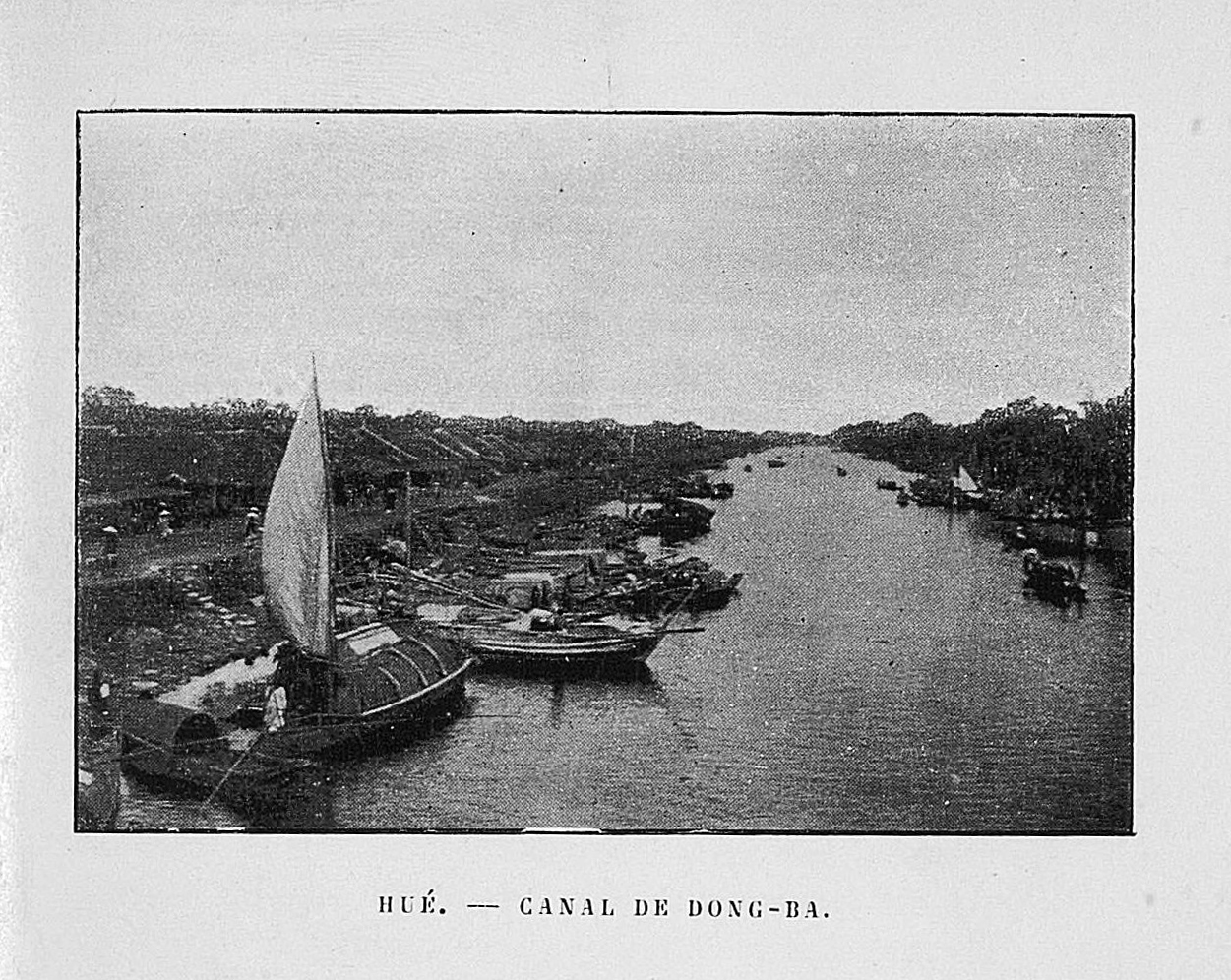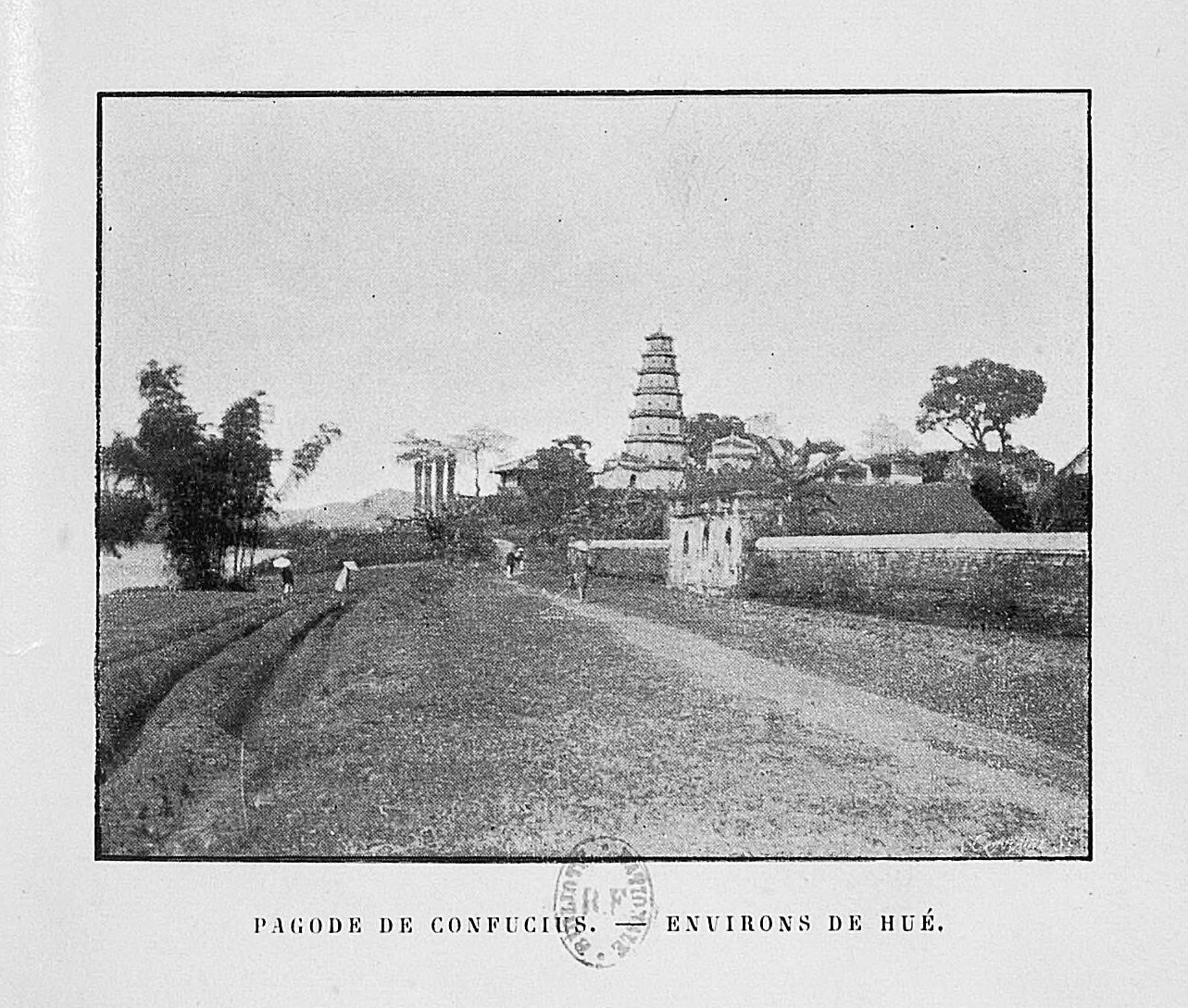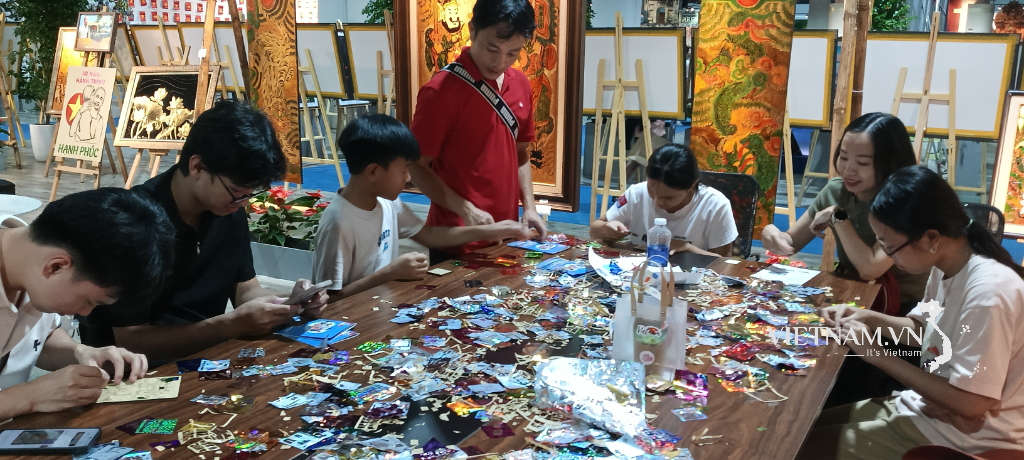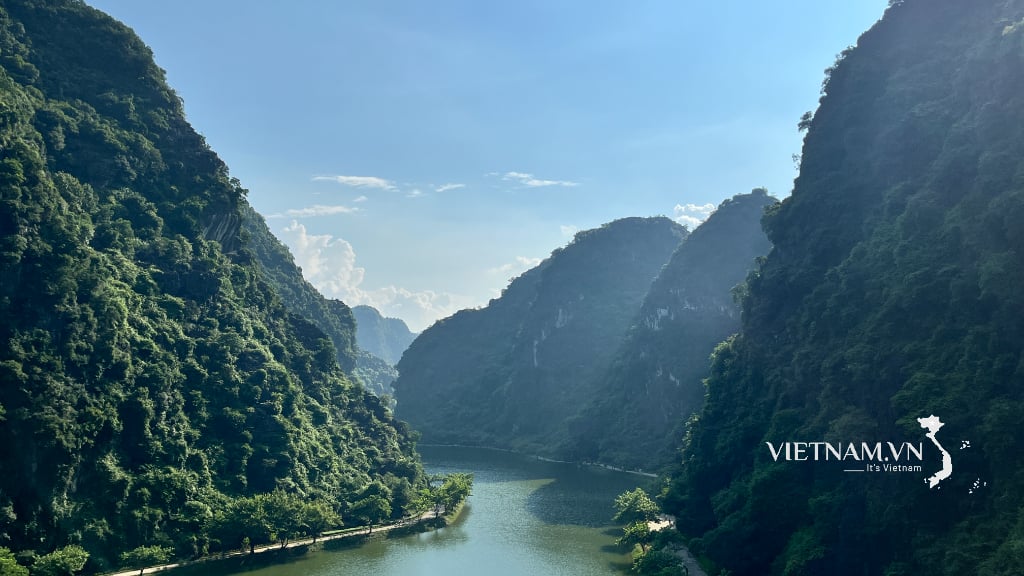This morning the wind was very cool; the sea waves were surging. Three spheres hanging on a pole warned the boats that the rough seas were not pleasant.
After passing Thuan An, we finally entered the Hue River [Huong River], bustling with rather unique fishing boats. A double mast leaned fully forward supporting a giant boom, from which hung a net measuring 40-50 square feet. The boom, balanced by a basket of pebbles as a counterweight, was operated by a man running on a platform like a tightrope walker.
The operation was carried out with military precision. A signal was given, and dozens of slender dugout canoes immediately left the dock, rowing vigorously and fanning out in a formation. A person at the bow, lying prone almost level with the water, would bang two sturdy wooden planks together to startle the fish and herd them into the net. This fishing process was unique to Central Vietnam; first-time campers near rivers or lagoons would anxiously wonder what the sudden noise in the night meant.

Hue - Dong Ba River
The scenery is vibrant. Boats glide between the banks: small, brightly whitewashed temples, erected right at the entrance to the village, brighten up the gray thatched-roof houses. This is Bao Vinh, the port of Hue; a few rather large boats seem to be curiously observing you with round eyes painted on their bows.
Soon, we left the Perfume River at a major bend and entered the Dong Ba River; on the banks connected by two small bridges, the first a dilapidated wooden bridge, and the second an iron bridge, inaugurated only a year ago, we noticed a series of shabby huts, shacks, and houses built of Chinese-style bricks, which were also quite run-down. The embankments of Hue are not very large.
It would be hard to believe we had arrived in the capital if, above these dilapidated shacks, there hadn't been a dark city wall and, in the distance, a massive gate topped with an elegant three-tiered watchtower.
Leaving the canal [of the Dong Ba River], we met the Perfume River again; at this point, the riverbed was as wide as a lake, and five minutes later, we reached the other bank, a few steps from the French Legation, in the French concession [located on the south bank of the Perfume River].
The scenery was breathtaking. In front were the grand buildings of the Legation, and here and there in the gardens, small white houses housing various departments. Behind, a circular platform of verdant hills stretched out, the highest being Montagne du Roi [Mount Ngự Bình], a mountain range opposite the citadel, its peaks covered in pine trees, forming a screen-like shape.

Thien Mu Pagoda - Near Hue
In the distant, pale blue horizon, a vast mountain range with jagged, sharp peaks stretched out. All of it possessed a man-made yet majestic appearance: a combination of the harshness of the high mountains and the natural landscape, arranged and embellished by Japanese landscape painters.
There was no trace of a real city. So far, I've only seen thatched huts, villages scattered among the green trees. Strangely, the first impression this dark capital left, with its houses so fragile they could be blown away by a gust of wind, was that one might think it was a camp; a few huts built under clumps of bamboo, nestled right next to a dark citadel.
It's hard to believe a week has passed since that magnificent morning when the ancient capital of Vietnam, with its river, canals lined with thatched huts, and dark citadel, creating a melancholic note in the opera, first appeared before me, amidst clumps of bamboo and blooming cockscomb flowers. With the gracious and warm welcome of the Apostolic Nunciature, one can easily forgive the slight delay. Is there any way to avoid confusing the dates when time flies by so quickly, like hours?
If I had to follow the probabilistic calculations that travelers have performed in outlining their itineraries, my holiday in Hue would probably be coming to an end. However, the endearing insistence of my hosts transformed the moment of departure into a distant and fleeting prospect. They insisted that I could not leave without attending several solemn ceremonies that would take place shortly, including the Nghinh Xuan ceremony, the king's departure from the capital, and other festivals I was unaware of.
In short, there were countless valid reasons for my submission. That's all I did, and wonderfully, imprisonment, understood in this way, was sweet. (to be continued)
(Nguyen Quang Dieu excerpted from the book * Around Asia : Southern, Central, and Northern Vietnam*, translated by Hoang Thi Hang and Bui Thi He, published by AlphaBooks - National Archives Center I and Dan Tri Publishing House in July 2024)
Source: https://thanhnien.vn/du-ky-viet-nam-hue-va-vung-ngoai-o-185241210222554996.htm







![[Photo] Prime Minister Pham Minh Chinh receives the Minister of Emergency Situations of the Russian Federation.](https://vphoto.vietnam.vn/thumb/1200x675/vietnam/resource/IMAGE/2026/03/05/1772712011395_ndo_br_thiet-ke-chua-co-ten-76-png.webp)
![[Photo] General Secretary To Lam working with the Central Inspection Committee](https://vphoto.vietnam.vn/thumb/1200x675/vietnam/resource/IMAGE/2026/03/05/1772718314670_a1-bnd-8682-5192-jpg.webp)




































































































Comment (0)